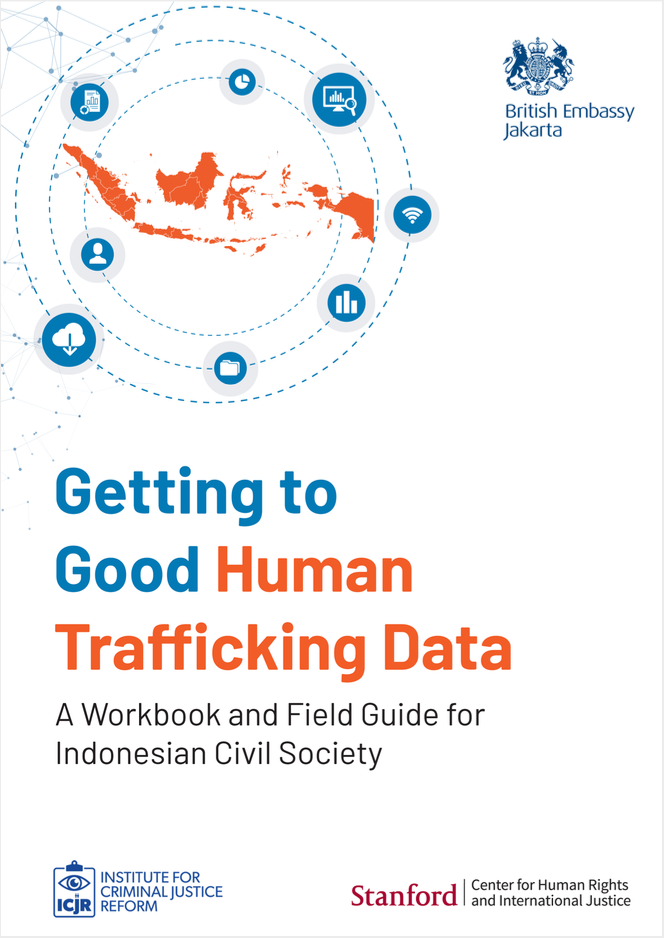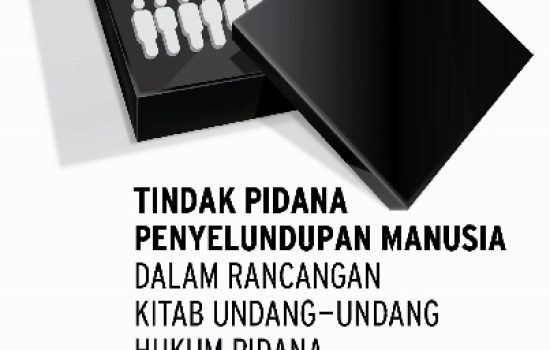Human trafficking is a gross human rights violation that requires multifaceted and systemic interventions to combat. People of all ages are exploited into forced labour and commercial sex in each of the 34 provinces of Indonesia, which is a major source country and, to a lesser degree, a transit and destination country for human trafficking. Indonesian migrant workers can be vulnerable, and we observe many cases of human trafficking in domestic work, factories, construction, manufacturing, on palm oil plantations, and on fishing vessels. Domestic trafficking, including into sexual exploitation, is also a significant problem.
As with any problem, successful interventions must be based on solid, reliable evidence about what is happening, to whom, where, why, and how. Quite simply, without good data, we will never be able to put a stop to this problem. To be most effective, prevention strategies must be targeted on communities where victimisation is more likely to occur, protection efforts must be tailored to the stated needs of survivors, and prosecutions must rely on solid, reliable evidence.
Human trafficking data are not just the number of clients served or the number of prosecutions in a given district – they are also information about people’s needs, how they were and will be served, what makes someone vulnerable to trafficking in the first place, what is the modus operandi of the crime, what makes a community resilient, what is an appropriate amount of restitution for trafficking survivors, what is fair sentencing for a trafficker, what encourages policymakers to support anti-trafficking legislation, and how to deter the crime in the first place. These data are both qualitative and quantitative. Moreover, data should not only be tabulated once a year to produce a report for a government, donor, or multilateral agency; good data collection requires ongoing dedication.
The more the anti-trafficking field can align its practices, definitions, and standards around data collection, security, and analysis, the greater the chance we have to generate more accurate, higher quality, and useful data to drive our work. From there, we can better understand which interventions are working so that we can replicate and scale them to accelerate impact and reach more people. We all feel the burden of limited resources, whether human, technological,
or financial. Therefore, it is important that we share information and insights in order to minimise duplicative efforts and maximise collective impact. If we are ever to make a meaningful dent in the problem of human trafficking, collaboration is not a choice, but a necessity.
The idea of data collection does not need to be intimidating. This workbook provides useful and easily implementable guidance to support your organization in collecting good data and using them to shape your programs. Learning how to integrate good data collection and utilization will ensure that your programming is impactful and enable you to evaluate and learn from what’s working, for example, in helping develop more targeted advocacy campaigns that respond to the needs of the community. Often, what is needed to achieve good data is attention to detail combined with thoughtfulness and passion; it does not need to be a complex or highly technical endeavour.
Download the Workbook Here
Download the Annexes Here




